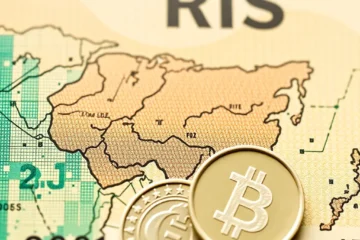About This Course
Explore world history from the Paleolithic era through Europe’s Age of Exploration in this middle school world history course. Find out what happened during the last ice age and how humans adapted to new environments, then study ancient civilizations in India, China and Greece. The experienced instructors who lead these lessons will teach you about the Roman Republic and Roman Empire, medieval life in different countries and key figures and events in the Scientific Revolution. The brief and engaging video lessons teach you all the info you need to understand world history, and each lesson features a quick quiz you can use to test your knowledge of the materials. When you’ve finished the lessons in this course, you’ll be familiar with:
- Causes of the Neolithic Agricultural Revolution
- Hebrew peoples movements to and from Egypt
- Development of the Byzantine Empire
- Spread of Islam
- Power struggles in the Holy Roman Empire
- Origins of capitalism
Topics
| Category | Objectives |
|---|---|
| Paleolithic Era to the Agricultural Revolution | Learn about the last ice age and hunter-gatherer societies. Identify the locations of early human communities throughout the world and discuss implications of the Neolithic Agricultural Revolution. |
| Civilizations of Mesopotamia, Egypt & Kush | Discover how cities were invented and how language and writing evolved in early civilizations. Explore the history of money and the tools used to create empires. Describe the Fertile Crescent, Hammurabi’s Code and Iron Age empires. |
| The Ancient Hebrews | Differentiate between polytheism and monotheism, and examine the origins of Judaism. Identify key individuals in the development of Jewish religion. Determine the locations associated with the Hebrews’ exodus and movements to and from Egypt. |
| Ancient Greek Civilization | Survey the history of the alphabet and Greek epics. Discover the birth of philosophy and key philosophers then dive into the Peloponnesian War, the Athenian Golden Age and life in Sparta. Discuss Alexander the Great and the birth of Hellenism. |
| Early Civilization in India | Figure out the significance of Aryan invasions to India and study Brahmanism and India’s caste system. Understand Buddha’s teachings, Sanskrit literature and early intellectual traditions. |
| Early Civilizations in China | Depict the geographic features of China and origins of Chinese civilization in the Huang-He Valley. Discuss Confucianism, political contributions from the Han Dynasty and the significance of the Silk Roads. |
| The Roman Republic | Outline events that led to the rise of the Roman Republic and discuss its key offices and political structure. Define the Pax Romana and identify components of Roman Republic reform. Learn about Cicero, Julius Caesar and the death of the Republic. |
| The Roman Empire and Cultural Legacies | Explore the connection between the early Christian church and Judaism before examining the reign of Augustus Caesar, Constantine’s conversion and the fall of Rome. Discuss cultural legacies of Roman art, architecture and technology. |
| The Byzantine Empire | See the events behind the establishment of Constantinople and follow the steps in the development of the Byzantine Empire. Differentiate between the views held by Eastern Orthodox and Roman Catholic churches on church-state relations. |
| Islamic Civilizations in the Middle Ages | Delve into the birth of Islam and the Five Pillars of the Islamic Faith. Discuss Mohammed, people of the book, Caliphates’ progress, Muslim scholars and merchants of Arab society. Determine how the Sunnah influenced the daily lives of Muslims. |
| China in the Middle Ages | Examine China’s reunification under the Tang Dynasty and how Buddhism spread during this period. Assess the impact of Confucianism in the Sung and Mongol periods. Learn about key discoveries in the Middle Ages, including gunpowder. |
| Medieval Africa | Discover the Niger River and its role in medieval African trade routes then take a look at Trans-Saharan caravan trade, Islamic beliefs and scholarship and written and oral traditions of the period. |
| Medieval Japan | Learn about Prince Shotoku of Japan and find out how the lord-vassal system worked. Explore the branches of Zen Buddhism and 9th and 10th century Japanese literature and drama. Assess the role of military societies and samurais in the 12th century. |
| Medieval Europe | Learn how Christianity spread through medieval Europe and study Charlemagne’s Divine Right to Rule, power struggles of the Holy Roman Empire and the significance of the Magna Carta. Analyze the First Crusade and the Great Crusades and the decline of papal authority. |
| Meso-American and Andean Civilizations | Witness the rise of the Mayan and Incan Empires and the Aztecs, then discuss the defeat of the Incans and Aztecs. Explore family life and practices in each of these societies and uncover oral traditions for each. |
| Renaissance Europe | Outline events of the Renaissance and the rise and fall of the House of Medici. Discover Marco Polo’s travel routes, Italy’s transformation and Michelangelo’s works. Assess the significance of the printing press and the decline of Latin. |
| The Reformation in Europe | Uncover theological and political ideas from Erasmus and Tyndale, and discuss the birth of the Protestant Reformation, Council of Trent and the Counter-Reformation. |
| The Scientific Revolution | Meet the leaders of the Scientific Revolution and see the breakthroughs in medicine and chemistry. Examine the roles of Galileo, Isaac Newton, Kepler, Bacon and Descartes. |
| The Enlightenment | Understand the roots of the Enlightenment and identify the key thinkers of the period. Explore political theories from Thomas Hobbes and John Locke, the origins of capitalism and the influence of Enlightenment ideas on democratic thought. |
| Europe and the Age of Exploration | Discuss some of the reasons people sailed from the Old World to the New World and meet the Portuguese and Spanish explorers of the period. Describe conquistadors, the Columbian Exchange and the market economy. |

